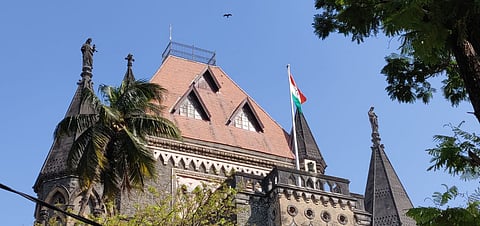

NUDGED by the Bombay High Court, the Central government Thursday gives an assurance that the National Expert Group on Vaccine Administration for COVID-19 (NEGVAC) will examine the feasibility of allowing door to door vaccination of bed-ridden, differently-abled and above-75 citizens.
A division bench of Chief Justice Dipankar Datta and GS Kulkarni said the NEGVAC would examine the matter with care, compassion, kindness and empathy they (elderly citizens) deserve, and that the decision of the NEGVAC would be placed before the Court on June 2.
The bench said no segment of the society should feel neglected, while the nation marches ahead to vaccinate its citizens, and in the likely event of the NEGVAC deciding in favour of door to door vaccination for the elderly and disabled citizens, such policy may be circulated for implementation by the States without waiting for the orders the Court.
The Mumbai Municipal Corporation by way of affidavit expressed its inability to introduce door to door vaccination unless and until the Central Government permits the same.
Petitioner-Dhruti Kapadia, however, contended that door-to-door vaccination had been undertaken in Berhampur, Odisha despite a lack of direction from the Centre. She quoted some tweets to show that it had been conducted successfully.
Chief Justice Datta in the course of hearing remarked the government should be chasing people to vaccinate them, not the other way around. He observed that the long lines and crowds at vaccination centres could put citizens at risk of contracting COVID-19.
ASG Anil Singh responded by clarifying that the Ministry of Health and Family Welfare does, in fact, provide "advance information on the availability of COVID vaccine doses to be supplied to the States and Union Territories." He also mentioned that the Centre has issued advisories about the same, and timelines for two weeks in advance.
The Court pointed out that this did not account for those who could not reach vaccination centres. It asked to know what the Centre's plan was with regards to such citizens.
Singh replied saying that efforts are being taken to reach housing societies and apartment buildings so that people would only have to travel a short distance. He mentioned that monitoring for after-effects of the vaccine had to take place, and ambulances would have to be placed outside all such vaccination centres.
The Court pointed out that the same issues as regular vaccination centres would take place at societies and that the government could place a well-equipped ambulance at the site at most.
It also commented that it was disappointed with the BMC, which seemed to be taking a selective approach to vaccination, especially endangering those who are old and cannot be present at vaccination centres.
The Court also heard matters related to CoWIN portal. The plea alleged that those who had obtained appointments upon accessing the CoWIN portal were either made to wait for long hours for vaccination or were refused such vaccination on the ground that there was no stock. It was added by the petitioner that the preference was being given to 'on spot' registrants who are walking in for vaccination.
The court issued a notice in the matter and reiterated that online registrants who have obtained appointments for vaccination upon accessing the CoWIN portal should be given preference to 'on spot' registrants in the matter of vaccination.
It directed the government to make an earnest endeavour to ensure that elderly citizens are not made to stand in queues at the vaccination centres for long and that immediate steps are taken to vaccinate them without making them wait.
The matter will be next heard on June 2.